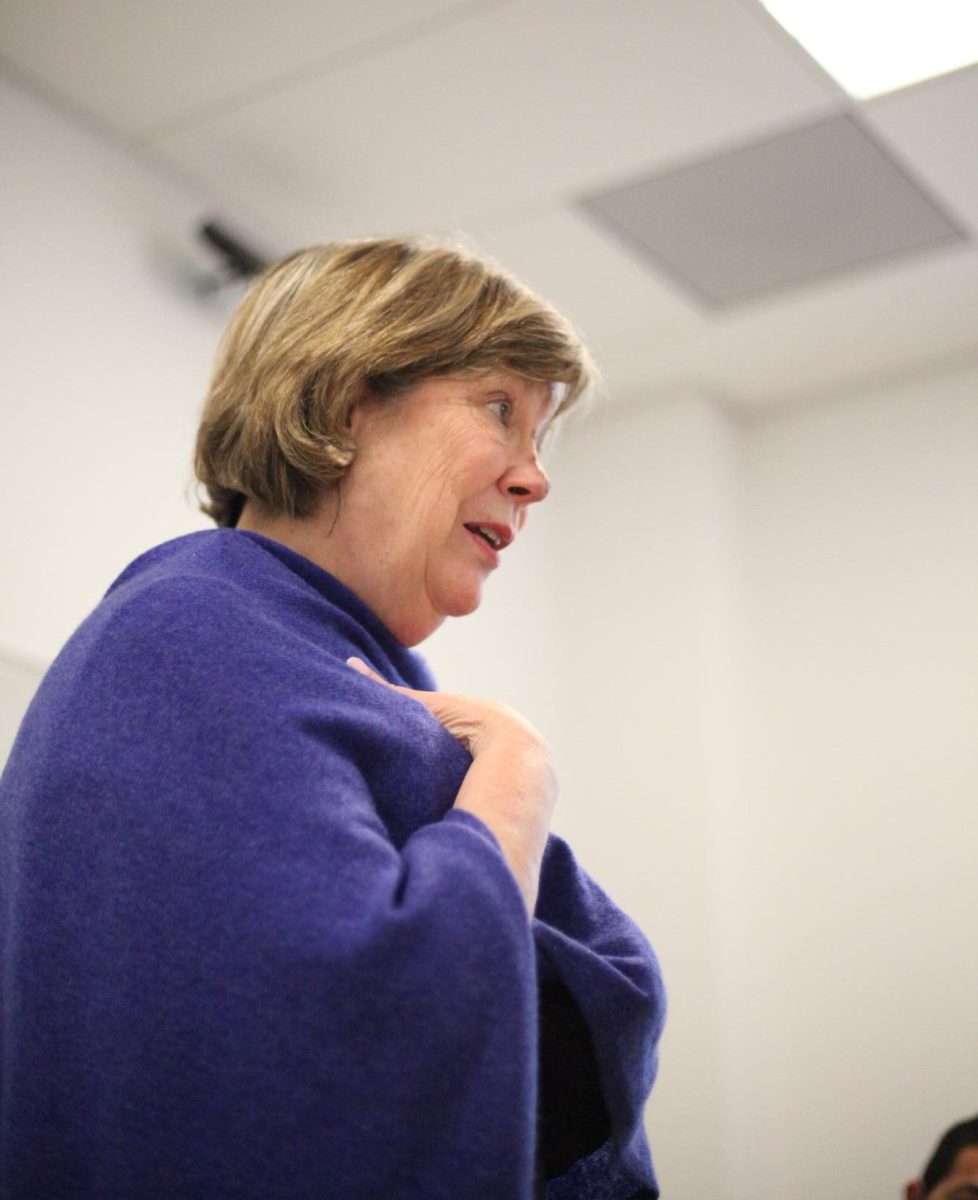Protest on campus
On Thursday, Oct. 10, Sonoma State’s chapter of Turning Point USA invited and hosted Paula Scanlan onto campus, a conservative media influencer who has campaigned to segregate transgender athletes outside of college sports teams.
The conservative youth organization had made headlines last April, when Two Turning Point USA members admitted to assaulting a queer professor at Arizona State University.
Scanlan is a former teammate of the American swimmer Lia Thomas, the first openly transgender athlete to win a NCAA Division 1 national championship.
In response to the ‘real women’s event’ hosted by TPUSA and Scanlan, SSU’s Queer Student Alliance and SSU’s Women and Gender Studies Club held a protest in front of Stevenson Hall.
“Currently on a flight from NYC to SF and I can FEEL the lack of testosterone,” said Scanlan on X (twitter) the day of the event. “This explains why beta males flock to these liberal cities. And why SF is a h3ll hole,”
The protest had over twice the amount of attendees than the ‘real women’s event’.
“We fought without fighting, we loved while uniting,” commented one Sonoma State student on the @ssuwgsclub instagram, “Their attempt to deconstruct us would never work, it only brought us closer as a community.”
While Somoma state is a liberal arts college, one could argue campus activism is not something that one would immediately associate with the college. But after the encampments last semester, the addition of the new Social Justice Club, and given how quick the WGS and QSA clubs were able to mobilize; perhaps that is starting to change.
New Legislation
On September 28, 2024 California Governor Gavin Newsom signed bill SB1287 into congress.
The bill encourages the CSU system to adopt new ‘codes of conduct’ across the system, similarly to the new Time, Place, and Manner regulations by the CSU.
Last month at Sonoma State University, according to the Press Democrat, “six students, five of whom were students of color, received letters notifying them they were in breach of the policy and student code of conduct,” after hosting a Potluck on SSU’s campus for Palestine.
One section of the bill asks for colleges to “adopt rules and procedures, as specified, to prohibit violent, harassing, intimidating, or discriminatory conduct that creates a hostile environment on campus, to prohibit conduct that limits or denies a person’s ability to participate in, or benefit from, the free exchange of ideas or the educational mission of the segment, and to establish, and require each campus to publish on campus internet websites, reasonable time, place, and manner restrictions and, if applicable, any advance permitting requirements for protests on campus.”
One of the bill’s sponsors, Democratic Senator Scott Wiener, was a leading figure in calling for criticizing SSU President Mike Lee’s support of student activists last semester.
The American Defamation League also supported the bill, which, according to the Intercept, has had a “history of advocating for post-9/11 anti-terrorism laws to undermine support for Palestinians in the U.S.”
While some supporters of Israel have argued that nearly any critique of the state of Israel is antisemitic, according to the U.S. State Department “Criticism of Israel similar to that leveled against any other country cannot be regarded as antisemitic.”
While there has been a bi-partisan agreement for the bill, critics of the bill are saying it will be used to target pro-Palestine demonstrations and groups across the country. According to the Intercept, “The bill would give universities even more tools to punish students who are protesting in support of Palestine,”
Leena Sabagh is an advocate and a policy manager with the Council on Islamic-American Relations.
“We see who’s currently being targeted and suppressed by universities: It’s the Palestinian students, it’s Arab students, it’s Muslim students, and the Jewish students who support Palestine, and all other students who are protesting in support of Palestine,” said Sabagh in an interview with the Intercept.
The Council of US Faculty Associations also opposed the bill, writing an open letter to its author, Senator Glazer. “We also have significant concerns about the mandated training programs that are outlined in the bill,” the statement said.
“These programs would only reinforce administrative attitudes and perspectives on speech and activities that will prevent campus communities from coming together. Topics considered taboo to campus administrations, regardless of their view by the general public, will be at risk of being silenced, threatening the academic integrity of California’s higher education institutions.”
It is unclear how the new legislation will directly affect Sonoma State going forward, especially with the new administration. Will student protests have to get more creative? Will the administration feel safer in taking a “harder stance” on the peaceful protests here?
Last August, Gaza’s death toll passed 40,000. Meanwhile, Sonoma State students are receiving warnings on their academic records for hosting potlucks on a college campus.



































